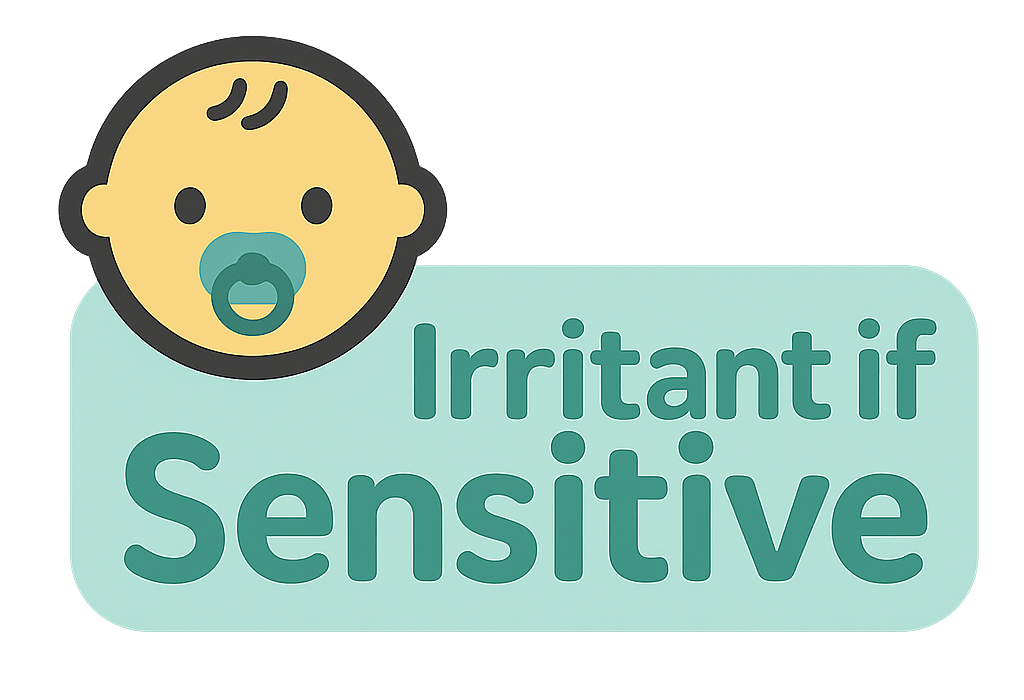Check for Different Age (6 available)
Is this safe for 0-6 month old newborns to use Butylparaben?
ℹ️General Overview
For infants (0-6 months), butylparaben is considered high risk. It has been linked to hormone effects and can irritate or sensitize skin. Because babies’ skin and hormone systems are still developing, this ingredient is best avoided in products for newborns and young infants.
✅What to Do
Choose products labeled for newborns or for sensitive baby skin and check the ingredient list—look for "paraben-free". Avoid creams, lotions or oils that list butylparaben on the label, especially for daily use or on large areas of baby skin. If you need a preservative-containing product (for example, certain medicated creams), ask your pediatrician for a safer alternative. If your baby gets a rash, redness, swelling, or other skin change after using a product, stop use and contact your pediatrician.
⚠️Warnings
Concerns come from multiple sources: government and chemical agencies (for example the European Chemicals Agency and European Union scientific reviews) and peer-reviewed studies that show endocrine disruption and developmental effects in animals, plus industry safety reviews that set limits on use. Some national reviews have recommended limiting or banning parabens in products for young children. Also, peer-reviewed literature reports strong evidence that butylparaben can cause skin allergic reactions in people. Because of these findings, avoid using products with butylparaben on infants and watch for redness, rashes, or changes in behavior or feeding that might signal a problem. If you see reactions, seek medical advice.
Are you holding the product?
Scan the full ingredient label and understand if it's safe for your child.
Safety Risk Labels
This ingredient has the following documented risks:








Tap or hover over labels to see detailed risk information.
Alternative Names for Butylparaben
This ingredient may also be listed as:
Always check ingredient labels carefully, as ingredients may be listed under different names.
Common Questions About Butylparaben
Is this ingredient safe for newborns to use Butylparaben?
Butylparaben is not recommended for 0-6 month old babies due to potential safety risks.
What are the hormones risks of Butylparaben for newborns?
May mess with natural hormone development in babies and children. This is especially important for babies whose skin and systems are still developing.
What are the confuse hormones risks of Butylparaben for newborns?
Acts like fake hormones in the body, confusing natural signals. This is especially important for babies whose skin and systems are still developing.
What are the fertility risks of Butylparaben for newborns?
Some studies link this to future fertility or reproductive issues. This is especially important for babies whose skin and systems are still developing.
What are the immune system risks of Butylparaben for newborns?
Could weaken or confuse immune system. This is especially important for babies whose skin and systems are still developing.
What are the irritant risks of Butylparaben for newborns?
Can cause skin redness, itchiness, or rashes—especially on sensitive baby skin. This is especially important for babies whose skin and systems are still developing.
What are the eczema risks of Butylparaben for newborns?
Linked to triggering or worsening eczema and similar skin conditions. This is especially important for babies whose skin and systems are still developing.
What are the banned risks of Butylparaben for newborns?
Banned or heavily restricted in one or more countries. This is especially important for babies whose skin and systems are still developing.
What are the environmental risks of Butylparaben for newborns?
Possible negative effects on the environment This is especially important for babies whose skin and systems are still developing.
What products contain Butylparaben?
Butylparaben is commonly found in skincare products, cosmetics, and topical applications. Always check ingredient labels before use.
When can infants start using products with Butylparaben?
The appropriate age depends on the specific ingredient properties and concentration. This analysis is for 0-6 month old babies. Use the age selector above to check other ages.
Want to scan another product?
Use our camera scanner to analyze more ingredient labels
Scan Another Product